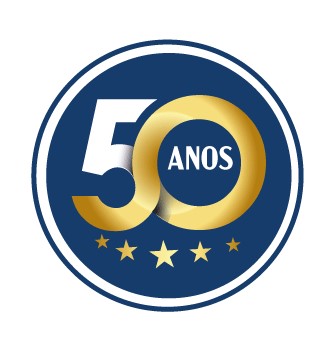Knowledge sharing between companies and its consequences
a study in coworking spaces
DOI:
https://doi.org/10.18225/ci.inf.v53i1.7322Palavras-chave:
knowledge sharing, coworking, information systems and technologiesResumo
Knowledge sharing is a process for companies to acquire knowledge and remain competitive and adaptable. At the same time, sharing can compromise the uniqueness of a company’s repository of knowledge, affecting its exclusivity. This research analyzes knowledge sharing between companies in coworking spaces and its consequences, considering the features of this type of organization. A case study was conducted in 5 of these spaces, in which 31 interviews, documents and observations were made for subsequent content analysis. The practices identified show that the coworking environment favors the management of information and knowledge and are associated with: performance of managers and employees of the spaces in interactions; parallel initiatives of the spaces; internal structure and distribution; characteristics of the external environment; own digital platforms and interactive media for communication; contact with external professionals; frequency and content of the formal events promoted. The management of these businesses is facilitated when it is evidenced that self- employed professionals and small teams are more aligned with the dynamics of coworking spaces; formal events are more favorable for interactions, and facilitation by managers is essential; own digital platforms, Instagram and WhatsApp support the practices identified, highlighting that emails are no longer used.
Downloads
Referências
AL-BUSAIDI, K.; OLFMAN, L. An Investigation of the determinants of knowledge management systems success in omani organizations. Journal of Global Information Technology, [s. l.], v. 8, n. 3, p. 6-27, 2005.
ALAVI, M.; LEIDNER, D. Review: knowledge management and knowledge management systems. MIS Quarterly, [s. l.], v. 25, n. 1, p. 107-136, Mar. 2001.
ASRAR-UL-HAQ, M; ANWAR, S. A systematic review of knowledge management and knowledge sharing: Trends, issues, and challenges. Cogent Business & Management, [s. l.], v. 3, n. 1, Jan. 2016.
ARASAKI, P. H. K.; CISNE, C. S.; SANTOS, N. Compartilhando mais que espaços. Revista Gestão Industrial, [s. l.], v. 11, n. 3, 2015.
AZEVEDO, I. C. S.; TEIXEIRA, C. S. Florianópolis: uma análise evolutiva do desenvolvimento do inovador da cidade a partir do seu ecossistema de inovação. Revista Brasileira de Contabilidade e Gestão, Ibirama, v. 6, n. 11, p. 108–120, 2017. DOI: 10.5965/2316419006092017108.
BARDIN, L. Análise de conteúdo. São Paulo: Edições 70, 2011.
BILANDZIC, M.; FOTH, M. Libraries as co-working spaces: understanding user motivations and perceived barriers to social learning. Library Hi Tech, [s. l.], v. 31, n. 2, p. 254-273, Jun. 2013.
BOLLINGER, A. S.; SMITH, R. D. Managing organizational knowledge as a strategic asset. Journal of Knowledge Management, [s. l.], v. 5, n. 1, p. 8-18, Mar. 2001.
BOUCKEN, R. B; REUSCHL, A. J. Coworking-spaces: how a phenomenon of the sharing economy builds a novel trend for the workplace and for entrepreneurship. Review of Managerial Science, [s. l.], v. 12, p. 317-334, Sept. 2016. DOI: https://doi.org/10.1007/s11846-016-0215-y.
CASHMAN, A. Coworking spaces worldwide. Deskmag. [S. l.], 5 Nov. 2012.
CHANG, C. M.; HSU, M. H.; LEE, Y. J. Factors influencing knowledge-sharing behavior in virtual communities: a longitudinal investigation. Information Systems Management, [s. l.], v. 32, n. 4, p. 331-340, Oct. 2015.
DAVENPORT, T. H; PRUSAK, L. Conhecimento Empresarial: como as organizações gerenciam o seu capital intelectual. Rio de Janeiro: Campus, 1998.
ENDEAVOR BRASIL. Índice de cidades Empreendedoras. 2017. Available at: repositorio.enap.gov.br/bitstream/1/6103/1/2017_ICE_Endeavor.pdf. Access on: 24 jun. 2022.
FERNANDES, R. F. M.; REZENDE, A. N. S.; SCHMIDT, S.; SCHREIBER, D.; ASHTON, M. S. G. A governança e o compartilhamento de conhecimento nos serviços de coworking. GEPROS: Revista Gestão da Produção Operações e Sistemas, [s. l.], v. 14, n. 4, p. 176, 2019.
FLICK, U. Qualidade na pesquisa qualitativa. Porto Alegre: Artmed, 2009.
GANDINI, A. The rise of coworking spaces: A literature review. Ephemera: Theory and Politics in Organization, [s. l.], v. 15, n. 1, p. 193-205, 2015.
GRANT, R. M. Reflections on knowledge-based approaches to the organization of production. Journal of Management & Governance, [s. l.], v. 17, p. 541-558, 2013.
GUPTA, A.; MATTARELLI, E.; SEHASAI, S.; BROSHAK, J. Use of collaborative technologies and knowledge sharing in co-located and distributed teams: Towards the 24-h knowledge factory. Journal of Strategic Information Systems, [s. l.], v. 18, n. 3, p. 147-161, 2009.
HSU, M.-H.; CHANG, C.-M. Examining interpersonal trust as a facilitator and uncertainty as an inhibitor of intra-organizational knowledge sharing. Information Systems Journal, [s. l.], v. 24, n. 2, p. 119-142, Sept. 2004.
HU, T. S.; LIN, C. Y.; CHANG, S. L. Knowledge intensive business services and client innovation. The Service Industries Journal, [s. l.], v. 33, n. 15-16, p. 1435-1455, 2013.
HUANG, Q.; DAVISON, R. M.; GU, J. The impact of trust, guanxi orientation and face on the intention of Chinese employees and managers to engage in peer-to-peer tacit and explicit knowledge sharing. Information Systems Journal, [s. l.], v. 21, n. 6, p. 477-580, Nov. 2011.
IGLESIAS-PRADAS, S.; HERNÁNDEZ-GARCÍA, Á.; FERNÁNDEZ-CARDADOR, P. Acceptance of corporate blogs for collaboration and knowledge sharing. Information Systems Management, [s. l.], v. 34, n. 3, p. 220-237, May. 2017.
IM, G.; RAI, A. Knowledge sharing ambidexterity in long-term inter-organizational relationships. Management Science, [s. l.], v. 54, n. 7, p. 1281-1296, July. 2008.
IM, G.; RAI, A. IT-enabled coordination for ambidextrous interorganizational relationships. Information Systems Research, [s. l.], v. 25, n. 1, p. 72-92, Nov. 2014.
KOJO, I.; NENONEN, S. Evolution of co-working places: drivers and possibilities. Intelligent Buildings International, [s. l.], v. 9, n. 3, p. 164-175, Dec. 2017.
LECLERCQ-VANDELANNOITTE, A.; ISAAC, H. The new office: how coworking changes the work concept. Journal of Business Strategy, [s. l.], v. 37, n. 6, p. 3-9, Nov. 2016.
LIN, H. F. Knowledge sharing and firm innovation capability: an empirical study. International Journal of Manpower, [s. l.], v. 28, n. 3/4, 2007. DOI 10.1108/01437720710755272.
LOEBBECKE, C.; VAN FENEMA, P. C.; POWELL, P. Managing inter-organizational knowledge sharing. Journal of Strategic Information Systems, [s. l.], v. 25, n. 1, p. 4-14, 2016.
MARTELO-LANDROGUEZ, S.; CEGARRA-NAVARRO, J. G. Linking knowledge corridors to customer value through knowledge processes, Journal of Knowledge Management, [s. l.], v. 18, n. 2, p. 342-365, 2014.
MARTINEZ-CONESA, I.; SOTO-ACOSTA, P.; CARAYANNIS, E. G. On the path towards open innovation: Assessing the role of knowledge management capability and environmental dynamism in SMEs. Journal of Knowledge Management, v. 21, n. 3, 2017.
MORISET, B. Building new places of the creative economy: the rise of coworking spaces, Netherlands. In: Proceedings of the 2nd Geography of Innovation, 2.; International Conference, 2013. Netherlands. Proceedings […]. Utrecht: Utrecht University, 2013. p. 1-24.
NESTA. Innovation toolkit: science and innovation network: Innovation in the UK. Londres: Nesta, 2015.
OLIVEIRA, M.; CURADO, C. M. M.; MAÇADA, A. C. G.; NODARI, F. Using alternative scales to measure knowledge sharing behavior: Are there any differences? Computers in Human Behavior, [s. l.], v. 44, p. 132-140, 2015.
SARAF, N.; LANGDON, C. S.; SAWY, O. E. IS integration and knowledge sharing in multi-unit firms: the winner's curse. European Journal of Information Systems, [s. l.], v. 22, n. 6, p. 592-603, 2013.
SARKER, S.; XIAO, X; BEAULIEU, T. Qualitative studies in information systems: a critical review and some guiding principles. MIS Quarterly, [s. l.], v. 37, n. 4, 2013.
SCHOPFEL, J.; ROCHE, J.; HUBERT, G. Co-working and innovation: new concepts for academic librariesand learning centres. New Library World, [s. l.], v. 116, n. 1/2, p. 67-78, Jan. 2015.
SIMEONOVA, B. Transactive memory systems and web 2.0 in knowledge sharing: A conceptual model based on activity theory and critical realism. Information Systems Journal, [s. l.], v. 28, n. 4, p. 592-611, July. 2018.
SOTO-ACOSTA, P.; CEGARRA-NAVARRO, J. G.; GARCIA-PEREZ, A. From the guest editors:" Enterprise social media for knowledge management and innovation in SMEs". Information Systems Management, [s. l.], v. 34, n. 3, p. 203-204, July 2017.
STEFFEN, M. O.; OLIVEIRA, M.; BALLE, A. R. Knowledge sharing among companies in a science and technology park. Business Information Review, [s. l.], v. 34, n. 2, p. 101-108, 2017.
TAKEUCHI, H.; NONAKA, I. Gestão do conhecimento. Porto Alegre: Bookman, 2008.
TONGUR, S.; ENGWALL, M. The business model dilemma of technology shifts. Technovation, [s. l.], v. 34, n. 9, p. 525-535, 2014.
VRONTIS, D.; THRASSOU, A.; SANTORO, G.; PAPA, A. Ambidexterity, external knowledge and performance in knowledge-intensive firms. Journal of Technology Transfer, [s. l.], v. 42, n. 2, p. 374-388, 2017.
WANG, S.; NOE, R. A. Knowledge sharing: A review and directions for future research. Human Resource Management Review, [s. l.], v. 20, n. 2, p. 115-131, 2010.
YIN, R. K. Estudo de caso: planejamento e métodos. 5. ed. Porto Alegre: Bookman, 2015.
ZIMMERMANN, A.; OSHRI, I.; LIOLIOU, E.; GERBASI, A. Sourcing in or out: Implications for social capital and knowledge sharing. Journal of Strategic Information Systems, [s. l.], v. 27, n. 1, p. 82-100, 2018.
Downloads
Publicado
Edição
Seção
Licença
Copyright (c) 2024 Robson Sotoriva Piccini, Ariel Behr, Giovana Sordi Schiavi

Este trabalho está licenciado sob uma licença Creative Commons Attribution-ShareAlike 4.0 International License.
- A publicação se reserva o direito de efetuar, nos originais, alterações de ordem normativa, ortográfica e gramatical, com vistas a manter o padrão culto da língua, respeitando, porém, o estilo dos autores;
- As provas finais não serão enviadas aos autores;
- Os autores mantém os direitos totais sobre seus trabalhos publicados na revista Ciência da Informação, ficando sua reimpressão total ou parcial, depósito ou republicação sujeita à indicação de primeira publicação na revista, por meio da Licença Pública 4.0 Internacional Atribuição-CompartilharIgual
- Deve ser consignada a fonte de publicação original;
- As opiniões emitidas pelos autores dos artigos são de sua exclusiva responsabilidade;
- Cada autor receberá dois exemplares da revista, caso esteja disponível no formato impresso.





























